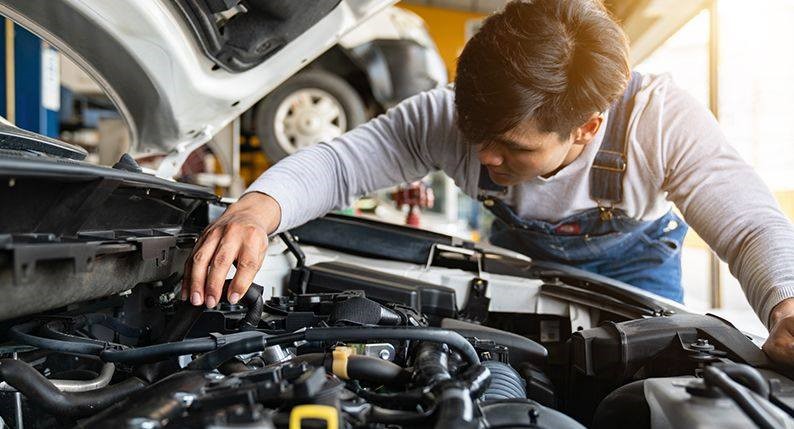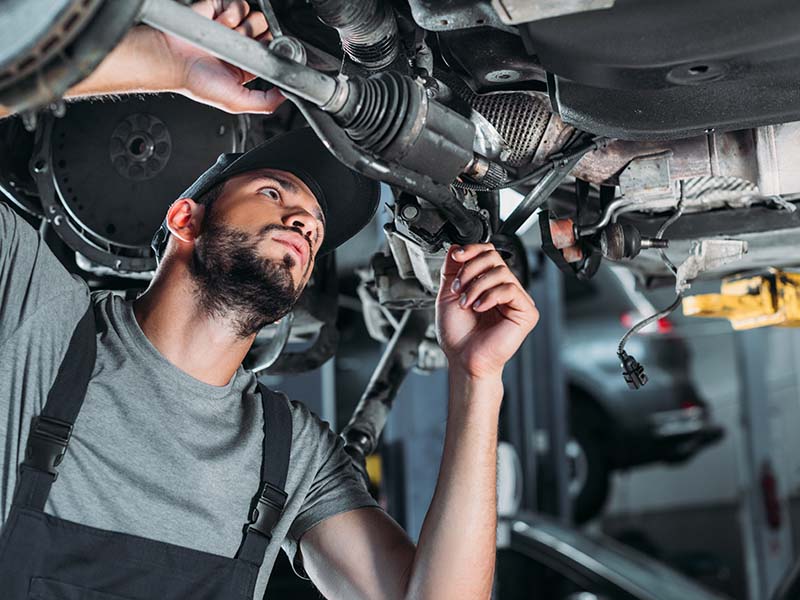All Categories
Featured
Keeping your automobile in peak problem requires interest to different maintenance tasks, with liquid checks being among one of the most essential. Car fluids play vital duties in making certain smooth procedure, safety, and longevity. Ignoring liquid upkeep can lead to significant performance concerns or expensive fixings. Listed below, we'll explore the relevance of monitoring and keeping your automobile's fluids and ideas for doing so successfully.
- Engine Oil: Safeguarding Important Parts. Engine oil ensures that the relocating components of your engine continue to be moisturized, decreasing friction and avoiding getting too hot. Over time, engine oil breaks down or ends up being contaminated, reducing its effectiveness. Without proper lubrication, engine components can wear swiftly, leading to reduced performance or complete failure.
Exactly How to Preserve: Inspect the oil degree making use of the dipstick and complement if essential. Follow your car's service schedule for oil adjustments, commonly every 3,000 to 7,500 miles, depending upon the type of oil and your driving behaviors. 2. Coolant: Taking Care Of Engine Temperatures. Coolant, or antifreeze, assists manage your engine's temperature, avoiding getting too hot in summer and cold in winter months. As it distributes, coolant takes in excess warm and resolves it with the radiator. In time, pollutants can develop, or the fluid might break down, decreasing its effectiveness.

Just How to Maintain: Consistently inspect coolant levels in the tank and evaluate for leakages or staining. Flush and replace coolant as suggested, typically every 2 to five years. 3. Transmission Liquid: Smooth Gear Procedure. Transmission fluid lubricates the transmission system and guarantees smooth gear shifts. A well-maintained transmission liquid avoids overheating and safeguards inner parts from wear. Falling short to preserve this fluid can result in pricey repair work or substitutes.
Exactly How to Preserve: Check the liquid levels (if your lorry has a dipstick for transmission liquid) and check its shade. Dark or burned fluid indicates it's time for a modification, commonly every 30,000 to 60,000 miles. 4. Brake Fluid: Ensuring Safety And Security. Brake fluid is necessary for moving stress from your foot on the brake pedal to the stopping system, allowing your vehicle to stop effectively. With time, brake fluid can soak up moisture, lowering its boiling point and endangering stopping performance.
Exactly How to Preserve: Inspect the brake liquid level and problem. Have it changed if it appears dark or unclean. Lots of makers advise transforming brake fluid every 2 years or as required. 5. Power Steering Fluid: Easy Ability To Move. Power guiding liquid permits smooth and easy guiding. Low degrees or polluted fluid can make steering challenging, raising the threat of accidents.
How to Keep: Examine the fluid routinely and fill up if levels are reduced. Keep an eye out for leakages, which could bring about guiding system damages if unsolved. 6. Windscreen Washer Fluid: Clear Presence. Not related to efficiency, windshield washer fluid is crucial for keeping exposure. It assists keep the windshield clean, specifically throughout bad weather condition or when dust collects.

Just How to Keep: Refill the storage tank as required and make use of washer liquid designed for your climate to avoid cold or spotting. Best Practices for Liquid Maintenance. Follow the Manufacturer's Arrange: Describe your car's proprietor manual for upkeep periods details to your car. Screen for Leaks: Detecting fluid leakages early can stop extreme damages. Search for puddles or spots under your automobile. Make Use Of the Correct Fluids: Always utilize fluids suggested by your lorry's producer to prevent compatibility issues. Focus On Indication: Dashboard warning lights, unusual smells, or uncommon performance can suggest fluid-related troubles. The Benefits of Routine Liquid Checks. Boosted Efficiency: Liquids in good condition help all systems run smoothly. Prolonged Lifespan: Appropriate lubrication and air conditioning protect against early damage on components. Boosted Security: Brake fluid and coolant are essential for risk-free driving. Cost Savings: Dealing with fluid concerns early can avoid pricey fixings later on. Conclusion. Monitoring and maintaining your car's liquids is a essential but simple component of car ownership. Whether it's oil, coolant, or brake liquid, remaining aggressive with upkeep is the essential to long-lasting automobile health.
Latest Posts
Just How Can I Include Attractive Functions to My Fence?
Published Dec 19, 24
0 min read
What Permits Are Needed for Setting Up a Surround My Location?
Published Dec 19, 24
0 min read
Exactly How Seasonal Climate Impacts Your Lorry's Upkeep Requirements
Published Dec 19, 24
0 min read
More
Latest Posts
Just How Can I Include Attractive Functions to My Fence?
Published Dec 19, 24
0 min read
What Permits Are Needed for Setting Up a Surround My Location?
Published Dec 19, 24
0 min read
Exactly How Seasonal Climate Impacts Your Lorry's Upkeep Requirements
Published Dec 19, 24
0 min read